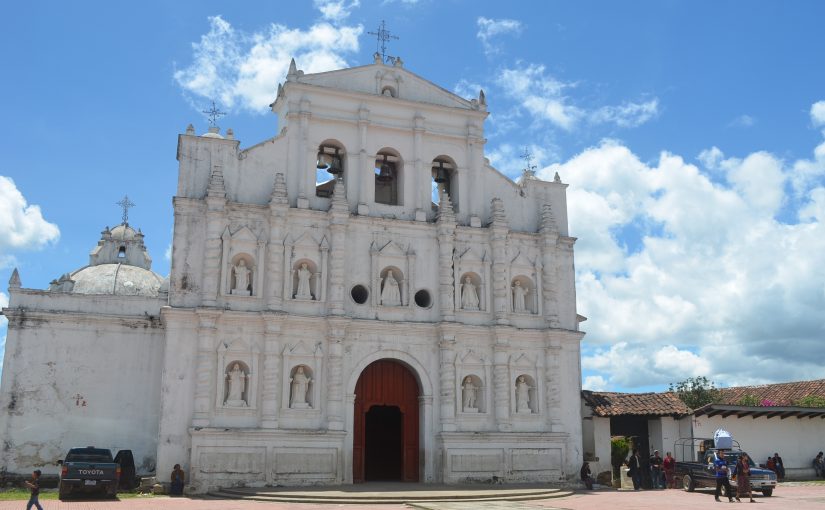In this unit we will study negation in K’iche’. We will use the particles na and ta(j) to create negative sencences.
Read the following sentences and questions along with their negative versions:
1) Kimb’e pa le juyub’.
1a) Na kimb’e ta pa le juyub’. 1b) Na kimb’e taj.
2) Kaki’kot le tijoxel pa le tijob’al.
2a) Na kaki’kot ta le tijoxel pa le tijob’al. 2b) Na kaki’kot taj.
3) La kixch’aw pa le ch’aweb’al?
3a) Na kojch’aw ta pa le ch’aweb’al. 3b) Na kojch’aw taj.
4) La katzijon la kuk’ le winaq?
4a) Na kintzijon ta kuk’ le e winaq. 4b) Na kintzijon taj.
5) La ko’pan pa le ko’ch le tijoxelab’?
5a) Na ko’pan ta pa le ko’ch le tijoxelab’. 5b) Na ko’pan taj.
Verb negation
Negative clauses in K’iche’ require two negation particles: na preceding the predicate head–which can be a verb, adjective, noun or pronoun–and ta(j) following it. Na is often deleted in colloquial speech. There are two variants of the second particle: taj in phrase-final position and ta elsewhere.
To answer “no” in K’iche’, the whole verb phrase is repeated and negated.
La k-ix-warik?
INT INC-2pl-sleep-pfm
Are you all sleeping?
Na k-uj-war taj
Neg1 INC-1pl-sleep Neg2
We aren’t sleeping.
Na k-uj-war ta waral
Neg1 INC-1pl-sleep Neg2 here
We don’t sleep here.
Na ka-ø-war ta la
Neg1 INC-ø-sleep Neg2 2singF
You aren’t sleeping. (Second person singular, formal)
Here are a couple more examples:
La k-at-b’in pa le uxlanb’al?
INT INC-2sing-walk loc. art. park
Are you walking to the park?
Na k-im-b’in taj
Neg1 INC-1sing-walk Neg2
I am not walking.
La k-ix-pe pa tijob’al?
INT INC-2pl-come loc. school
Are y’all coming to school?
Na k-oj-pe taj
Neg1 INC-1pl-come Neg2
We are not coming.
These are some more common intransitive verb roots:
| b’in(ik) | to walk, to travel |
| b’e(k) | to go |
| pe(tik) | to come |
| kape le jab’ | “it starts to rain” |
| kos(ik) | to be/become tired |
| qaj(ik) | to descend, to go down |
| kinqaj chuwach le juyub’. | “I descend the mountain” |
| wa'(ik) | to eat |
| ch’aw(ik) | to talk |
| ka’y(ik) | to see, to look |
| chakun(ik) | to work |
| kam(ik) | to die |
| war(ik) | to sleep |
| b’ixan(ik) | to sing |
| ki’kot(ik) | to be happy |
| b’ison(ik) | to be unhappy, sad |
| t’uyi'(k) | to sit |
| tak’i'(k) | to stand |
You will hear a series of questions. Listen carefully and answer them both in the positive and the negative:

